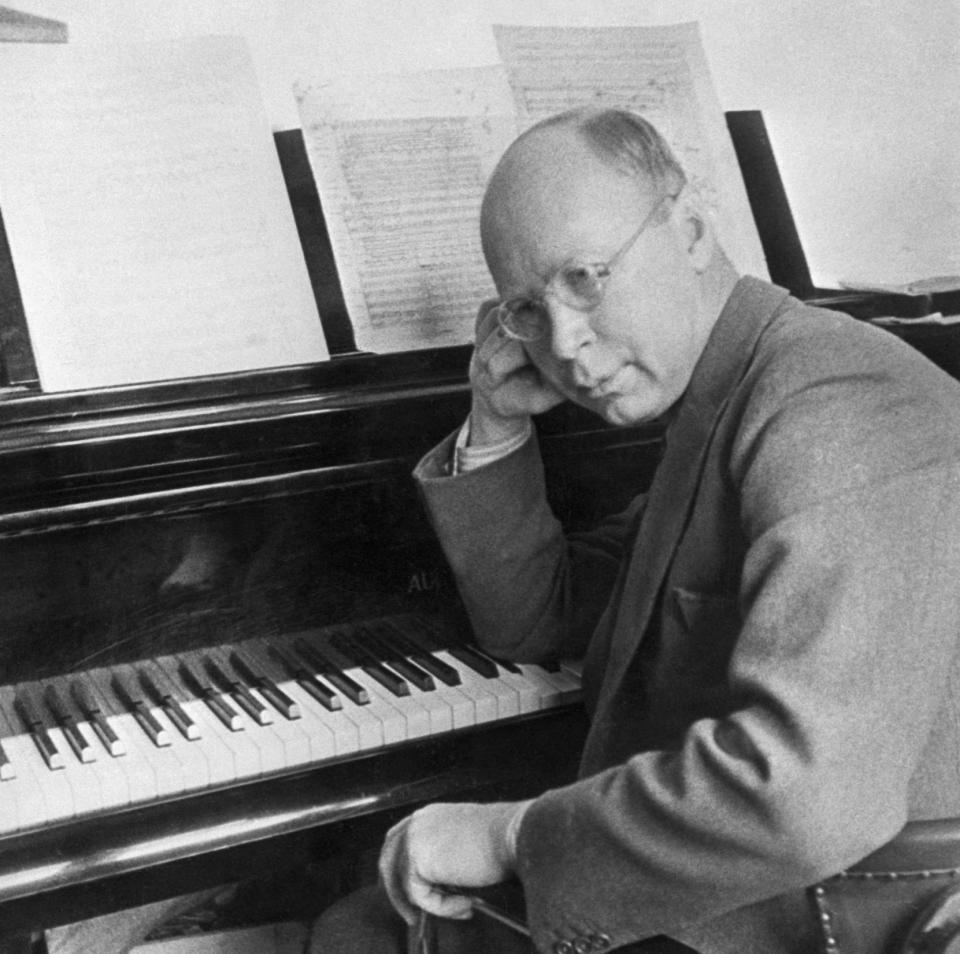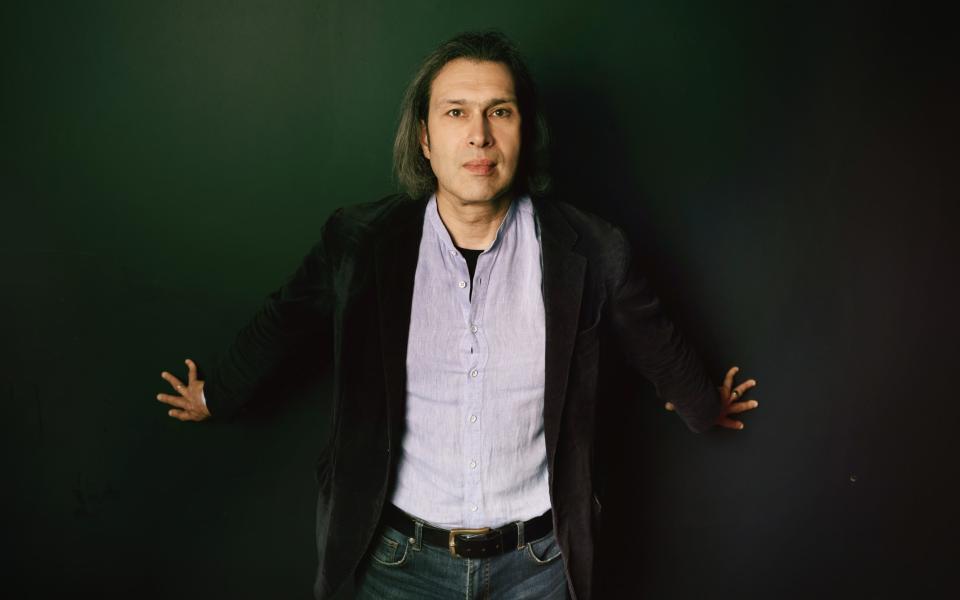More than a decade ago, Vladimir Jurowski, one of Russia’s best-known musical sons, began to realize that things were going in a bad direction in his native country.
“It was a feeling, a premonition that things would get worse, especially after Russia’s annexation of Crimea,” says the 52-year-old conductor. “The irony is that they reached out to me at that exact moment. The government offered to return my Russian passport, which I lost after immigrating to Germany with my family when I was 18. The person who contacted me from the Ministry of Culture was actually Leo Tolstoy’s great-grandson. Other emigrant Russian artists and musicians received the same offer and some accepted, but I could not. I am reminded of the case of Sergei Prokofiev, who accepted an offer to return to the Soviet Union in 1936 and was trapped from then on. He could never leave again. I didn’t want this to be my fate.
Jurowski’s career has centered on Germany and the UK since becoming music director of Glyndebourne Festival Opera in 2001, aged 29; here he wowed audiences with the sheer balletic grace and subtle sophistication of his performances. But he maintained artistic and personal ties with Russia. He frequently conducted the Russian National Orchestra and was artistic director of the Russian State Academic Symphony Orchestra until 2020, but this chapter of his life is now closed.
“I don’t think I could go back, I would risk my own security because my views on Russia are well known,” he says. “I think the country is moving towards what they call a national state, what I would call a fascist state. Frankly, it doesn’t look exactly like Stalin’s Soviet Union or Hitler’s Germany in 1938, but there are many similarities and they increase every day. Incidents such as the death of Alexei Navalny have become particularly bad since the last election. There are restrictions on freedom of expression, pressure on dissidents, the media and homosexuals. And in my opinion, the people running the country are criminals, real mafiaists. In other words, it is a terrorist state that you can compare with Iran or North Korea.”
Jurowski says all this with weary composure mixed with a touch of sadness. The tall, romantic poet now has patches of gray in his hair, but he is still as thin as ever, and he still enunciates his English words with careful precision. We meet in one of the numerous artists’ rooms at the back of the Royal Festival Hall; here he is rehearsing with the London Philharmonic Orchestra Die Götterdämmerung, “Wagner’s most magnificent and immensely complex” opera. The orchestra he directed for 15 years.

Jurowski has the immigrant’s super-sharp awareness of cultural and political realities, which doesn’t allow him to float blithely over politics. He recently sparked some negative comments by stating in an interview with the New York Times that “no musician is apolitical.”
“This was misunderstood,” he tells me. “I didn’t mean that all music was political, in fact I think music is not inherently political. But making music always has a context, it takes place in a certain place, at a certain time. Even Bach’s Mass in B Minor was political; he wrote this partly to favor the Catholic court in Dresden. And now certain genres of music have become extremely political. Tchaikovsky’s music is used for propaganda purposes by the Russian regime, and of course many in the West wanted to ban his music and the music of other Russian composers when Russia invaded Ukraine. This seems completely stupid to me. We cannot blame Tchaikovsky for the crimes of the current Russian state. “Of course, I can understand why Ukrainians feel differently.”
Even more controversial was Jurowski’s decision to allow public comment from two young climate change protesters who occupied the orchestra platform during a performance of Bruckner’s 4th Symphony with the Berlin Radio Symphony Orchestra in Lucerne last September. It’s clear the audience wasn’t happy with his decision at all. Why did he do this?


“We kept playing while they glued themselves to my podium, and now I thought let them talk for two minutes,” Jurowski says. “Many people in the audience were shouting in protest against this and I said, I promised they could talk, if you don’t stop shouting I will leave and that will be the end of the concert. If you give them a chance, we will finish the symphony. Then I had an email exchange with the protesters and I told them: OK, you want to save the environment, but there is also an ecology of the human soul, and this ecology is nourished by art and also by classical concerts. “I really wanted them to understand that, but at the same time, we shouldn’t be so narrow-minded that we prevent them from voicing their concerns while the planet is burning.”
Three years have passed since Jurowski left the LPO to head the State Opera in Munich and the Radio Orchestra in Berlin, where he lives with his wife Patricia (they have two children, one now working at a German opera house, the other a boarder .) at a cathedral school in England). In doing so, he appeared to be following in the footsteps of other conductors such as Kent Nagano and Esa-Pekka Salonen, who struggled for a time with the underfunded and high-pressure British orchestral scene, before sinking gratefully into the soft embrace of an orchestra. European or American orchestra where funding and rehearsal time are much more abundant. But it tells me that things have changed.


“The world is moving forward and things are very different in Germany now. For example, German radio orchestras, which have been the most protected area of funding for years, are now becoming an endangered species. Bosses of the two main public radio and television channels have said they may not need all of these orchestras in the near future. Discussions of possible closures and redundancies, which we also know from other countries such as Italy, and more recently discussions about orchestras on the BBC [the planned closure of the BBC Singers and cuts to the English BBC orchestras of 20 per cent were actually withdrawn under public pressure), is now happening in Germany. And because of the economic downturn in Germany, and the demands on public money from Covid, the refugee crisis and so on, people are beginning to ask questions we never heard in Germany before, such as – why do we need this elitist form of art? They are not asking as loudly as in the UK, but it’s coming.”
Jurowski is still sad that the UK has left “the European family of nations” as he called it, and is dismayed about the funding crisis in the arts sector. And he’s still fond of the country that gave him his first big post (a feeling which is reciprocated – in February Jurowski was awarded the highest honour available to a non-UK citizen, an Honorary KBE.) He can even find words of praise for our orchestral scene, “because everything moves so much quicker, and there is so much less time for everything, and because of that people are incredibly well prepared and super engaged.
“Also you have these wonderful audiences, I wish German audiences could learn from them, they are so open-minded and curious. It is remarkable what the British art scene is still achieving, despite all the funding problems. Really the artistic resources of your country are astonishingly rich.”
Vladimir Jurowski conducts the London Philharmonic Orchestra in Wagner’s ‘Götterdämmerung’ at the Royal Festival Hall on Saturday; lpo.org.uk. Vol 3 of the LPO’s Stravinsky CD series, conducted by Jurowski, is released on Friday on the LPO label